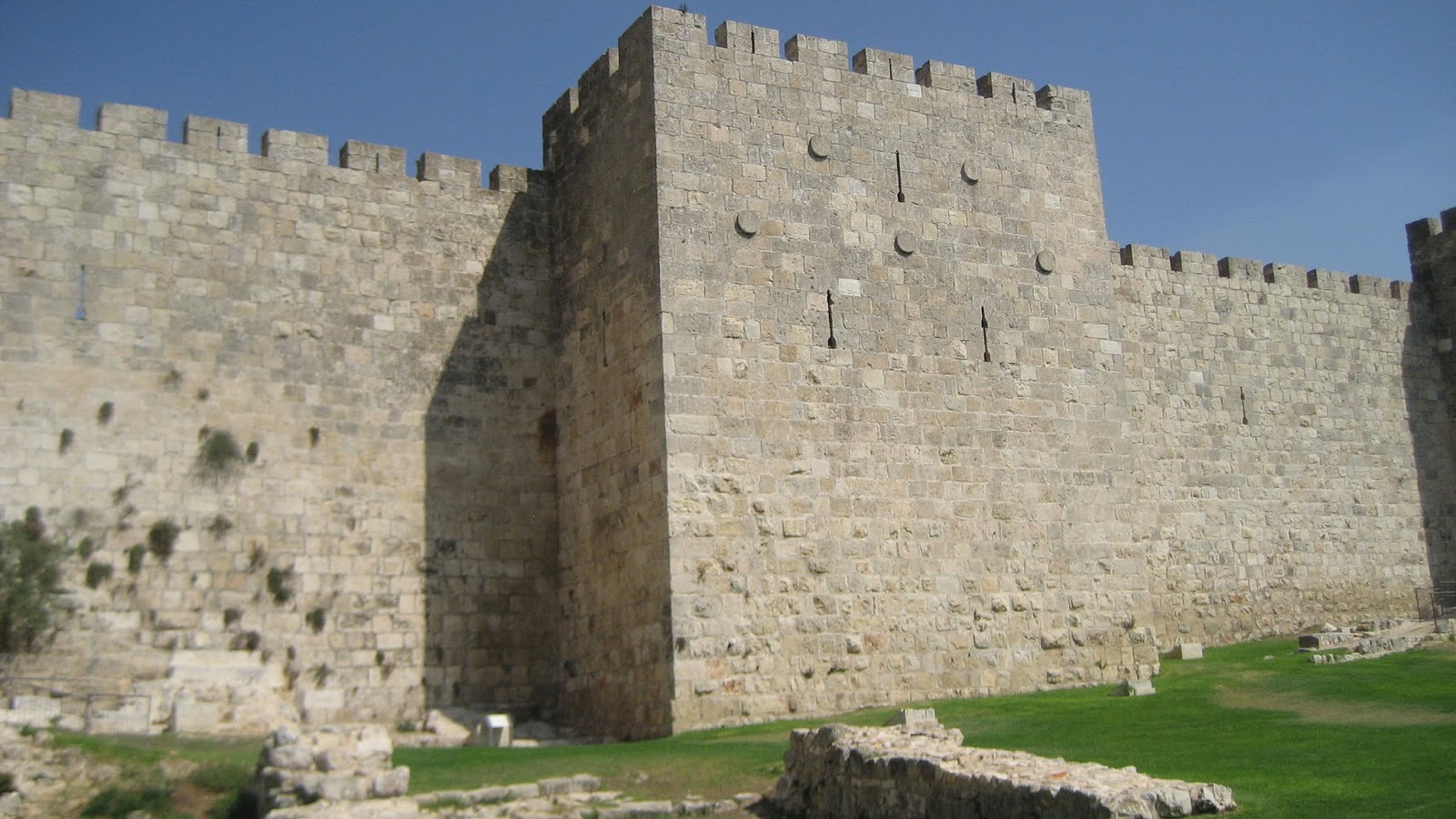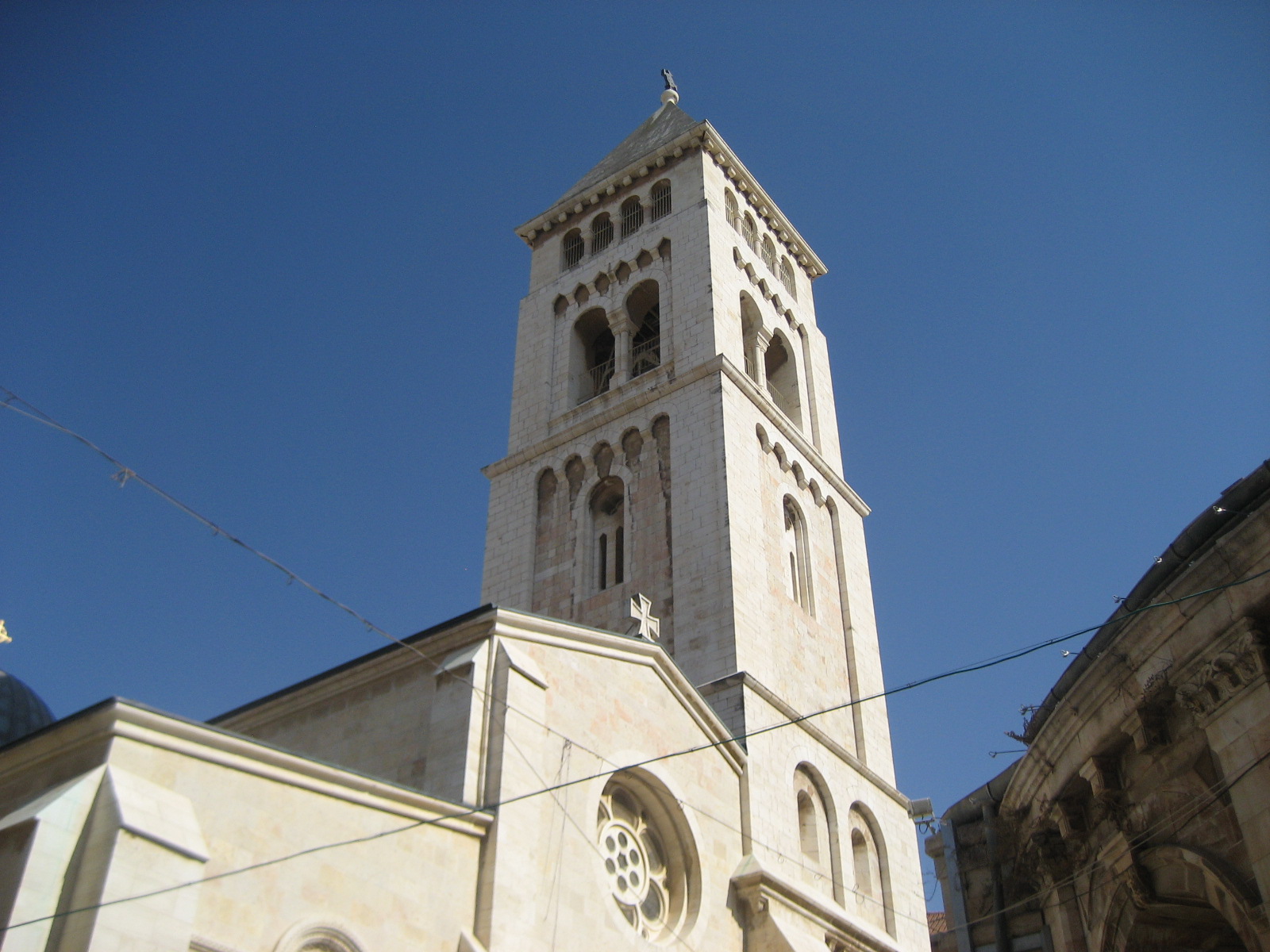Psalm 23. It may be the most infamous passage in the Psalms and perhaps the entire Bible. Thousands of sermons have expounded upon it. Theologians have written commentaries on it's meaning. Millions of people across the world recite this chapter under duress. However, is our understanding of this verse congruent with the culture, context, and scribal intent of its time? In other words, can we truly understand this vibrant Psalm without first understanding the world of which David was immersed?
Ancient cultural imagery is the conduit by which God gains the attention of the listener. Authors of the Biblical text did not intend a separation from the context about which they are alluding to, and frequently use imagery only locals would understand. Dr. Paul Wright, the head of JUC, commented about a triune geographical thread that runs through the Bible.
People, land, and God are inseparable. The Hebrew word
eretz meaning "land" is the 5th most used noun in the entire Old Testament behind Lord, son, God, and king. God is trying to seize our attention with his land.
We get to Psalm 23 where David is a citizen of God's land. Despite the countless recitations and discourses regarding Psalm 23, it is difficult to grasp the thrust and profound implications of the verses if we don't enter into the context of the shepherd. Forget all you have ever thought about this passage and peer through the eyes of a shepherd:
1 The Lord is my shepherd
I lack nothing.
Right off the bat, David sets the ontological tone and tenor of the Psalm: God is my shepherd and I am one of His sheep. A very humbling idea when I sit on it. David inverts the role he typically assumes and attributes various characteristics of himself to God.
Shepherds are typically the youngest boys in a family around 8-12 years. Below is a picture of a shepherd. They spend their time herding the sheep and ensure the safety of every single sheep. (Jesus touches on this in Matt. 18:12) In the ancient world, sheep were like a 401k or gold. If a non family member undertook the role of a shepherd and lost a sheep, he would be required to compensate the owner of the sheep. Hence, typically family members were shepherds.
Furthermore, a sheep cannot want anything in a dry and barren land such as the wilderness. They only get what they need to live.
 |
| Welcome to sheep country in the wilderness. |
 |
| Welcome to sheep country in the Negev. |
2 He makes me lie down in green pastures
He leads me to still waters
Welcome to green pastures...
"Still waters" is a euphemistic phrase for places of safety. During the wet season, rain cascades down the hills in the hill country causing massive flash floods in the wilderness. Part of a shepherd's job is to protect the sheep from these flash floods that occur in canyons called "wadis." Still waters can be springs or pools of residual freshwater from floods.
3 He renews my life
He guides me in right paths
as befits His name.
"He renews my life" literally reads in the Hebrew
nafshi yeshoveiv, and carries the connotation of returning breath back to someone who has lost it. In fact,
yeshoveiv comes from the root word
shuv which is where the popular word
t'shuva derives its origin. Have you ever stepped outside on a frigid winter day and felt the gusty winds suck the life from your mouth? It feels as though asphyxiation is occurring. This is the picture David is trying to convey. The wind in the wilderness is so severe at times it can create a collapsed lung effect, siphoning the breath out of your body. God is the one performing a CPR like tactic by restoring David's breathing.
If we look close at this picture above, there are paths carved into the side of this green pasture hill. These are called "paths of righteousness." The sheep work their way around the hill multiple times in search of food. Sometimes in life we feel like God may be leading us in circles on a purposeless path. However, our inability to grasp what God is teaching us as He leads us on these paths require multiple revolutions before things begin to click.
Notice how some paths are higher or lower than others. There is no symmetry. Each sheep is on its own particular path following the shepherd. Some sheep take a higher route while others prefer navigating closer to the base of the hill. We are each on our own path, heeding the shepherd's voice. Sheep don't play the comparison game. In fact, sheep rely on their cohort in front of them to lead them safely along these paths. Anatomically, sheep bear a hunched over posture which prevents their head from rising up to a level they can see well. To compensate for this physical deficiency, sheep focus on the heels of the other in front of them trusting the other sheep will steer them correct.
We need others to help us navigate our own paths. Sheep are communal beings but stand alone as dumb. Our Shepherd's voice initiates movement and response, but it is other sheep who listen and act as navigators, too.
"Paths of righteousness" can also refer to charity. God leads into giving freely to others and Himself. See the earlier post about Tzedekah.
4 Though I walk through a valley of deepest darkness,
I fear no harm, for You are with me
Your rod and your staff-they comfort me.
Notice David doesn't say "if" but "though." Its not a matter of if but when. During the night, shepherds must be judicious and take extra liberties to maintain order and proximity with the sheep. It can get darn near pitch black in the middle of the desert. Shepherds also must ensure no outside predators attack the flock. To prevent this from happening, shepherds carry a club-like instrument to fend off beasts from killing the sheep. Remember, sheep=gold! A shepherd will risk his own life to save a member of the flock. A goad-like staff is used to pull curious wanderers back into the group.
5 You spread a table for me in full view of my enemies
You anoint my head with oil;
my drink is abundant.
God, the penultimate in hospitality, welcomes David into His tent and prepares a long meal for him while his enemies (possibly Saul) leer at him. Bedouin hospitality stands on 2 major principles:
1. Protect your guest(s) at all costs even at the expense of a family member
2. Anticipate your guest's needs without them requesting anything
God offers David protection from whomever his enemies may be under His tent and visualizes David's needs in advance. Hence...
You anoint my head with oil literally reads "You fatten my head with oil." Continual exposure to the heat and dry air in the wilderness sucks the moisture out of the skin. One use of olive oil in the ancient world was a topical moisturizer. Applying olive oil, or any type of lotion for that matter, causes your skin to expand and become "fat." This is the thrust of David's line here. Not only is God providing protection and food, He goes above and beyond by elevating David, sparing no expense to make him feel at home.
6 Only goodness and steadfast love shall pursue me
all the days of my life,
and I shall dwell in the house of the Lord for many long years.
This final verse may be my favorite.
Goodness and steadfast love in Hebrew are
tov v'chesed, respectively. The Hebrew word for the phrase
shall pursue is
yirdfuni which means to "chase me."
Tov v'chesed chase me down all the days of my life. Some shepherds use sheep dogs to corral and herd the flock back into the sheep fold. Imagine 2 dogs,
tov and
chesed, guiding you into
the house of the Lord, or the sheep fold.
I hope this illustrates David's intent with greater clarity. May it be a blessing to you.

























